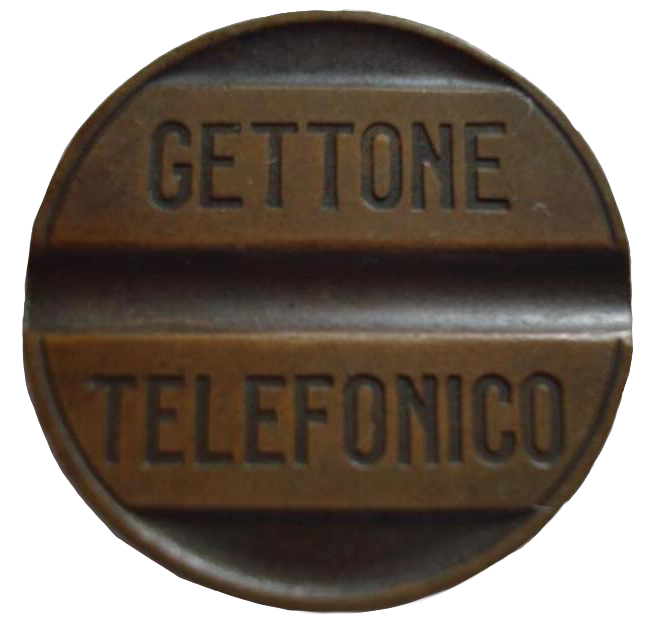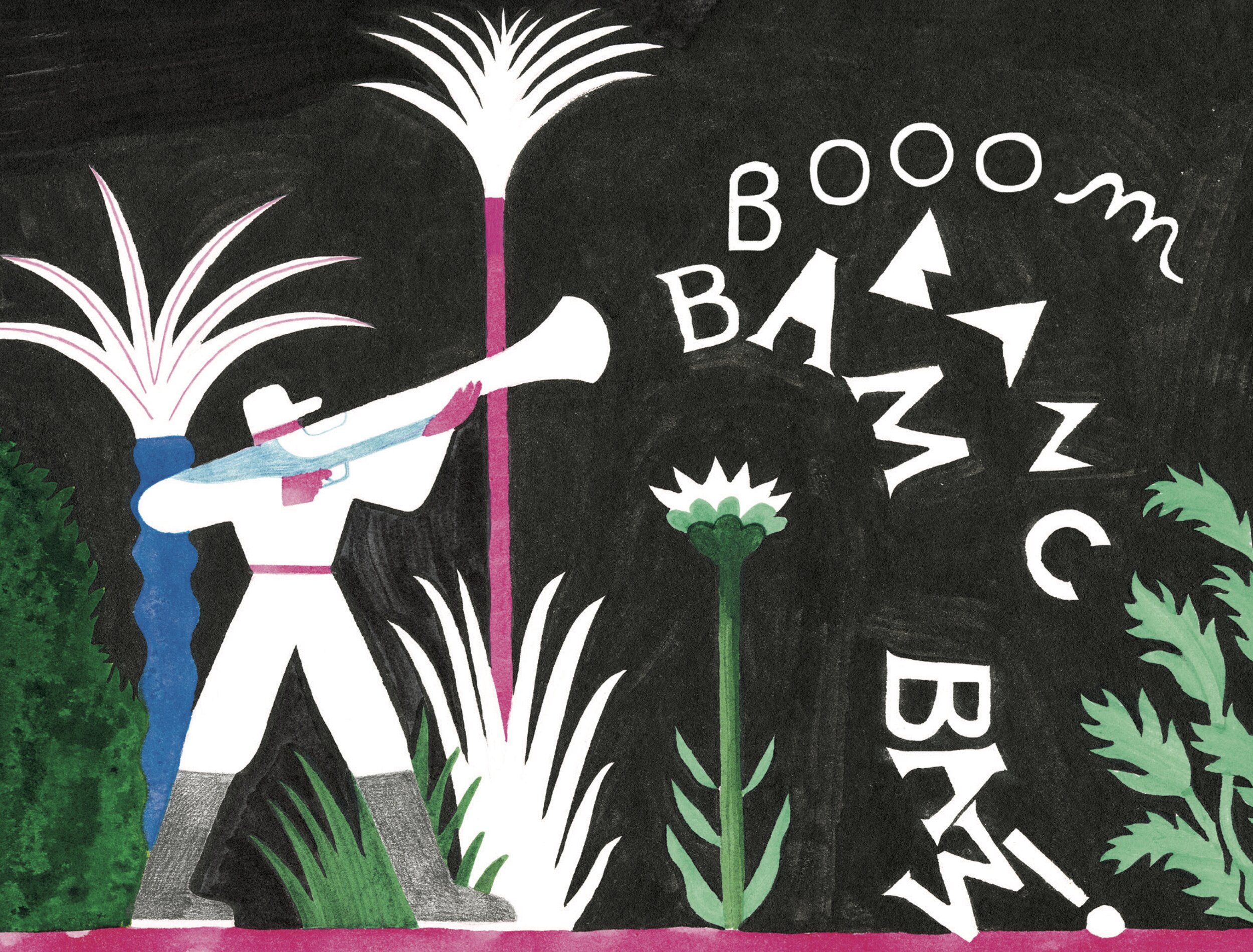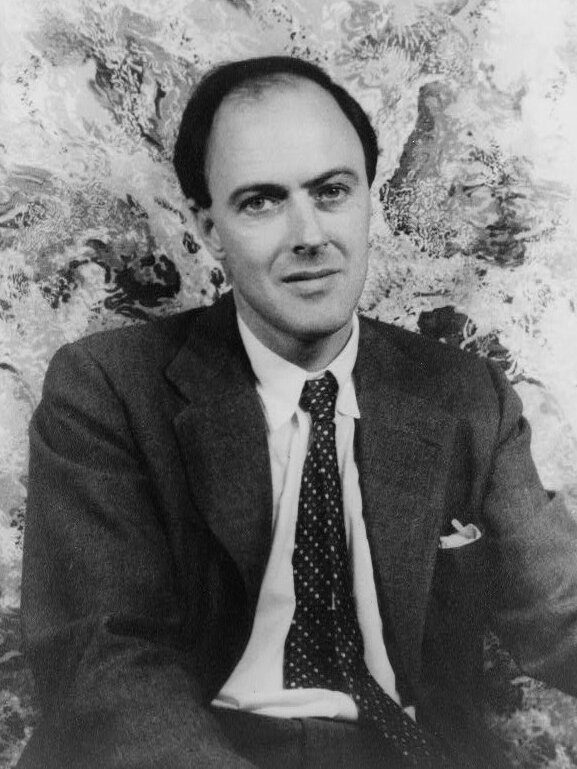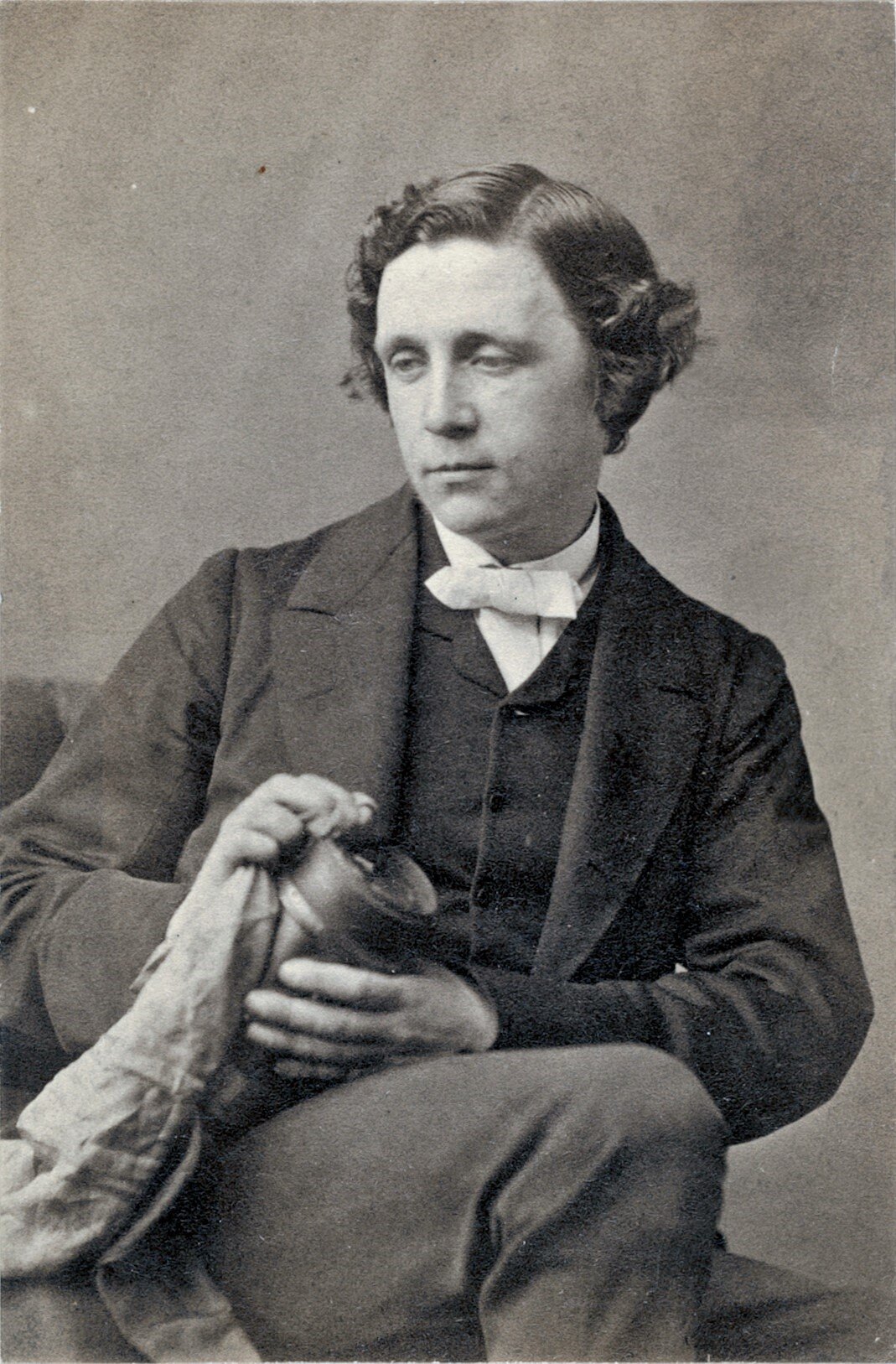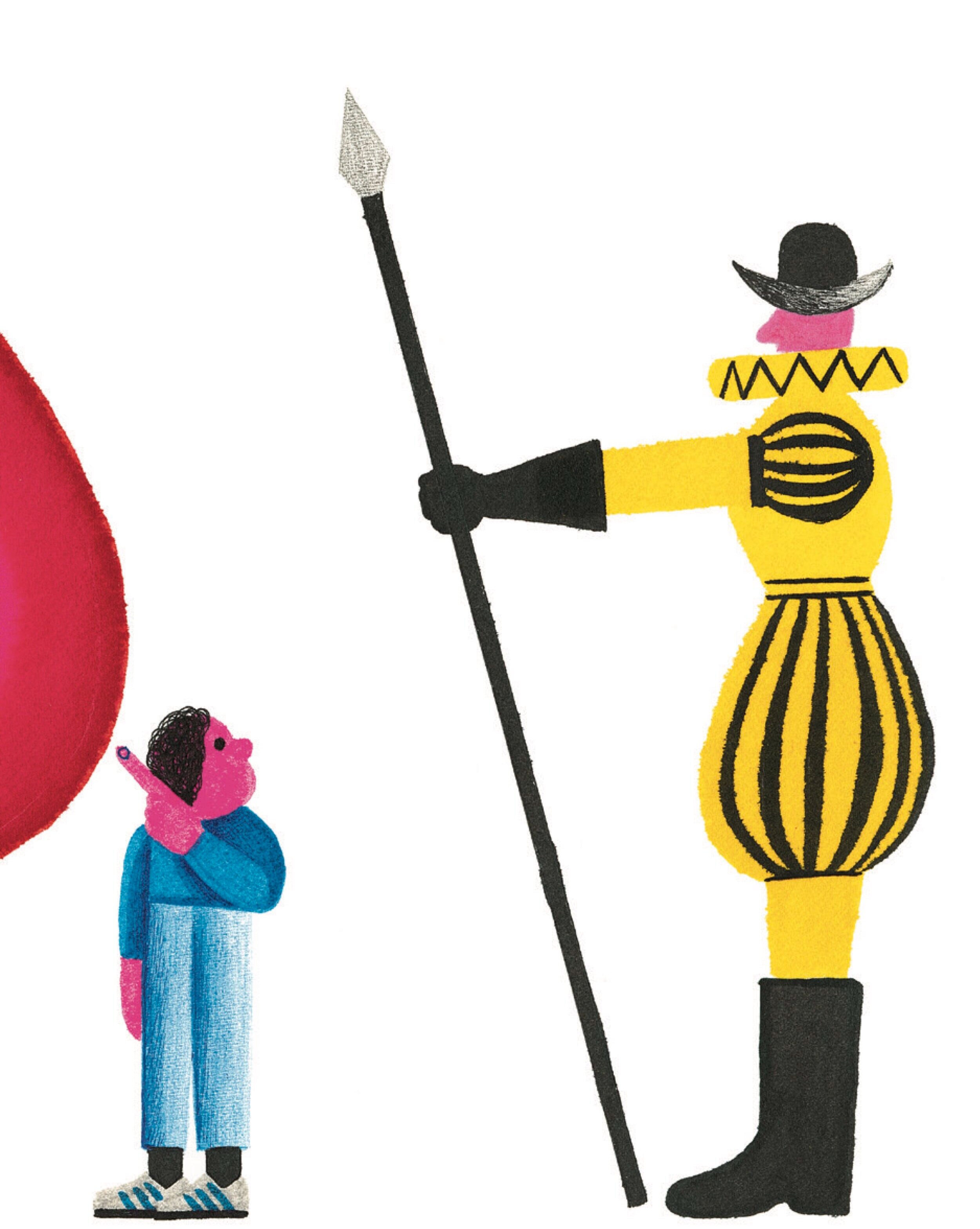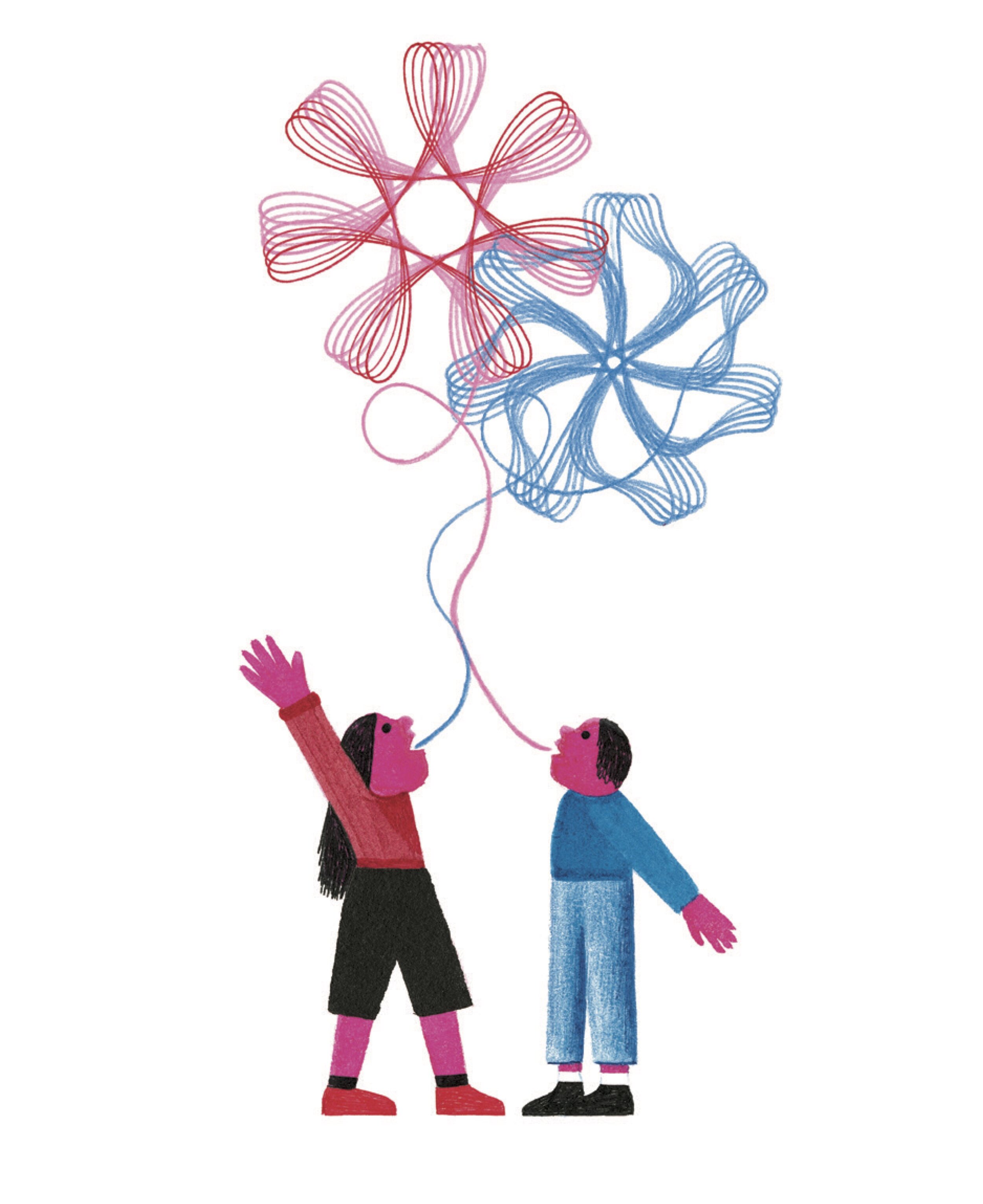Part 1: A Conversation around Language, Hijacking Reality, and Italy with Translator Antony Shugaar
In an interview touching on translation, Rodari, and children’s literature, Enchanted Lion’s Emilie Robert Wong and translator Antony Shugaar discuss his work on Gianni Rodari’s Telephone Tales. In this first part, he shares how his translation of Telephone Tales came to be published by Enchanted Lion, his approach toward translation as a form of reporting, and the Rodarian idea that, in the end, all stories just might be telephone calls.
October 23, 2020 marks Gianni Rodari’s 100th birthday. To celebrate this occasion, we will be releasing the interview with Antony Shugaar in three installments throughout the week. The second and third parts of the interview will be posted on the blog soon!
Just like in Telephone Tales, our story begins with a telephone token…
AS: [Showing the gettone.] This little thing is a wonderful little talisman. It’s a telephone token, and these are the things that Gianni Rodari would have had in his memory as the article that you use to make a phone call. They’re real little memory gadgets if you show them to an Italian. They still exist (this one is an old one), and the whole concept of Telephone Tales is based on [time] units of these gettoni. They slid into these little slots that would drop into the phone, and so it was almost like an arcade from older times: you put it in—and in the old days, you’d have a magic lantern show going, or you’d run a slot machine with this kind of thing—but instead, in Italy, you had a phone call. So there’s a little bit of magic and carnival in the whole memory of these gettoni.
ERW: Definitely a lot more whimsical than just pulling out your cell phone and calling.
AS: Exactly. And so, in Telephone Tales, this was how the father was calling his daughter. [The setup for Telephone Tales is] a father who is traveling, and the daughter is at home and six years old, and she wants a story to go to sleep.
ERW: Right, and so each of the Telephone Tales is a story told by a father to his daughter, which lasts for the duration of a single phone call. Nowadays, with the advent of podcasts, there’s been a real resurgence of interest in stories that are told through audio only. There’s something that is very intimate and compelling about the human voice, especially because when you’re listening to it, you as a participant have to imagine what’s going on. It’s not just presented to you, and so it becomes this collaborative effort between the storyteller and the listener to imagine and create this world of story together.
AS: I think that’s very true. And of course, Gianni Rodari was somebody who came up with radio, when radio was a link in a different way than when we came up with radio. My father told me the story, which I’ve also heard from other people, about when Franklin Delano Roosevelt was giving his fireside chats. His voice would go out to the country, and my father described hopping freights back then in the Depression: he’s walking through a town to get from the freight yard he arrived at on one side to the freight yard he wants to catch a train out of on the other, and all the windows in town are open, and every radio inside those windows is on—so crossing town, he could hear the whole fireside chat.
But in Italy, of course, Gianni Rodari was a partisan. The partisans in Italy weren’t fighting so much against fascism—which was bad, but Italy was invaded by Nazi Germany in 1943 when they tried to get out of the war, and that’s when the partisans really rose up. So for them, the radio was a lifeline to the outside world in a very, very dire time. So, those two things just seem to make what you said right now about voices—and the story that you build out of a voice telling you the story, and the story that you imagine, and the way you populate a story—seem very true.
ERW: And it goes back to when we first started telling stories around the campfire. We didn't have writing, and I think some cultural anthropologists believe that storytelling was what came first: that was how we connected with one another, and how and why we formed groups—part of it was because we were telling stories with each other.
AS: Right, absolutely. One of my favorite writers is a humorist, Robert Benchley, who’s known as a member of the Algonquin Round Table, with Dorothy Parker and others in New York. He wrote a story called “Mind’s Eye Trouble,” and he talks about being born with an imagination that amounts to a squint. He says that every book he’s ever written is inhabited by and set in the five square blocks around the house he grew up in, and the population of the story is always the kids he grew up with, so that when Mark Antony does his oration over the dead body of Caesar, it happens on the porch of the Presbyterian church across the way. And I love that: the idea that with any given set of words, and with any given story, there are a million different versions of that story. Of course, we have Telephone Tales illustrated, and it’s beautifully illustrated, and that certainly gives a guide to parts of the story.
ERW: Speaking of the illustration, how involved were you with the illustration process? Were you able to see drafts of what was happening? The illustrator, Valerio Vidali, is Italian himself, so I assume he didn’t need your translation, but how did that kind of collaboration work?
AS: Well, it wasn’t really a collaboration. Claudia [Claudia Bedrick, Enchanted Lion’s publisher] was interacting with Valerio. There are a couple of instances where Valerio has comic book sounds, but the comic sounds were [at first] Italian comic book sounds, non-American comic book sounds. It might have been something like “sblaf”—”sblaf,” a wonderful one. So, Valerio and I worked together on that to use comic book sounds from the English language.
I had a friend when I first moved to Italy, who, like all Italians, had grown up on comic books, and when she was sad, she would say “sig” (rhymes with “dig”), which is of course her pronunciation of “sigh,” which is logical if you’re Italian—think of the “gh” in “spaghetti.” Those intuitive comic book sounds that maybe you saw in Batman, the TV show from the 60s, where the famous use of “wham” suddenly appears on the screen, are not universal by any means.
ERW: It’s very much the same with animal sounds, too. You would think that the animals are going to sound the same all around the world, but as people, we hear things differently.
AS: Animal sounds! There’s a wonderful thing that’s up there with names of the various winds. I remember reading about it when I was very young, and learning that the Hebrew for a dog barking is “hav hav.” The conclusion to the story I read about it said that one of the interesting details is that on both sides of the Bering Strait, so both in Siberia and Alaska, it was generally agreed that whales say “hux.” Everybody agrees, “Yep, that’s what whales say,” so it was very funny.
And actually, I found a story from 1961 or 1963 in the New York Times about Gianni Rodari and about comic book sounds, and how he said that kids were speaking in comic book sounds. I was talking with Claudia about this when we were looking at the new biography of Gianni Rodari by Vanessa Roghi: Gianni Rodari was very proud of the fact that during the protest movements of the 1970s, which was a big protest time in Italy, the chants that young people were using as they were marching—and they were marching to object to any number of things that were totally valid, bad funding of the university system, insufficient pay for honest work, fascist repression of various things, and so on—but the rhyming chants that they came up with often were thought to have been very much inspired by Gianni Rodari in their use of the imagination. I love that.
ERW: Going back to the beginning, how and why did you become a translator?
AS: I became a translator primarily because I wanted to stay in Italy, and I wanted to go back to Italy because when I was a teenager, my father took me there. I was interested in language maybe because I’m good at language, and you’re generally interested in things you’re good at. I always studied a number of languages: I studied French, I’d studied Hebrew, I’d studied some Ancient languages. I just was fascinated by languages. I got the encyclopedia out, and I would look at different comparative alphabets and copy them down when I was seven years old—that’s just the weird tilt of my mind. My father spoke seven languages, so I came up with an interest in language, and I traveled around Italy with my father as a special thing for finishing high school. That was a great trip, and I wanted to go back when I was about 20.
I turned 21 in northern Italy, in a small town where I’d gone to work as a translator. A little bit earlier than that, I had been studying Italian, just because I wanted to study Italian, in Perugia, and I moved from where I was studying Italian to a town where I had been offered a job as a translator. I had absolutely no qualifications as a translator! It was a completely bad idea to hire me, but I tried to make up for that. This was in the old days when they had telex machines, prior even to faxes. The place where I worked was in the Alps in a small town, and we did translations via telex all over the world. So, I became a translator that way, went back to Perugia and finished up my school, and then came back to the United States.
At that point, I had a deep emotional and spiritual investment in Italian literature. And when you’re studying Italian literature, having a way of making a living is a pretty good idea, and translation, if you’re fast—and I’m very fast—is a good way to make money. So, it was love of Italian, love of language, love of Italian literature, and also a way to make a living.
ERW: And so how did you come to translate Telephone Tales for Enchanted Lion?
AS: I went back and forth from America to Italy, and I lived in Italy at one point for about ten years. And in the context, one of the things you learn as you go to a country is kind of like developing a picture—again, an old technology—where you put the paper down in the developer, and you see an image slowly emerge. Well, when you live in a country, you start to find out about things in the country. You start to find out about the literature: oh, I learned about this author three years in, and then seven years in, I learned about this author. I don’t remember exactly how many years in it was, but somebody said, “You should find out about Gianni Rodari. He is remarkable.” I had never heard of him, so I began to read Gianni Rodari and just loved it. I’ve always been a fan of Lewis Carroll; I’ve always been a fan of Roald Dahl. And the same kind of whimsy and freeform and hijacking of reality takes place with all of these authors. Gianni Rodari was a real masterful hijacker of ordinary reality.
I became fascinated, and I was a translator, so I started trying to persuade publishers that this might be interesting. I was already working in publishing to some extent, so there were networks, and there were book fairs, and I would talk to various people. One of the things I’ve noticed, and maybe I pride myself on it a little bit, but I will say this: I tried with many, many different publishers, and the funny thing is that really, only when you got to the very best publisher was the message understood, and that was Claudia. Actually, Gianni Rodari’s publisher in Italy, Edizione EL Einaudi’s Gaia Stock, suggested I get in touch with Claudia. I said to myself, “Well, I’ll give it one last try, but it’s been pretty discouraging trying to persuade people to be interested in Gianni Rodari,” but Claudia almost immediately responded, “Oh, that's interesting…” So, the best for last!
ERW: We’re definitely really glad that Telephone Tales found a home here. Why do you think that there was that sort of resistance against publishing Rodari in the United States?
AS: Well, doctors have a Hippocratic oath, which is ancient, going back almost three thousand, twenty-five hundred years, and the first line of the Hippocratic oath is, “First, do no harm.” And I think a lot of editors and publishers, especially editors who aren’t visionaries, are scared. It is hard to be an editor and a publisher, and I think their Hippocratic oath says, “First, make no mistakes.” So, don’t publish books that might be a mistake. Gianni Rodari is so radical and imaginative and fanciful, and at a certain point, if a number of people haven’t published Gianni Rodari and the years have gone by, then publishers and editors increasingly look at it and say, “Hmm, what’s wrong with that? Why hasn’t that been published? I’m not making that mistake. There must be a mistake here.” And so, I almost feel like at a certain point, a consensus grew that he couldn't be very good. Now having won the Hans Christian Andersen medal, I think the world children’s literature industry had agreed that he is quite good, so I don’t know… But Claudia was not laboring under that misapprehension.
ERW: Do you remember your reactions or impressions when you first read Telephone Tales? I don’t know if you were even thinking about translating it at that time, but did anything in particular catch your eye as a translator?
AS: It seemed to be wonderfully fluid: the content, okay, but the style is also very important, and perhaps when you’re a translator, you’re more concerned with the style than you are with the content. Because the content kind of goes of its own accord, and the style is what you really have to work on. I remember thinking that it was beautifully written, that the style was wonderful, that it had a clarity and a sophistication that together showed a great respect for young people. He wasn’t talking down to his readers. Also, I had lived in the northern, northwestern part of Italy that he is from, and so much of the diction was familiar to me. I just loved it because it punched the exact same buttons that I had grown up with, with Lewis Carroll’s Alice in Wonderland and in particular Martin Gardner’s Annotated Alice, which I loved very much. Martin Gardner was the columnist at Scientific American for mathematical things, but he was a lover of great whimsy.
I also felt that for me, this was very personal because I was constructing an understanding of Italian culture and what references there might be. Gianni Rodari really felt like he was rich: he was talking about Italian culture, and there were references to various things in Rome. I had lived in Rome for a while, and I think that he makes a reference in Telephone Tales to the 75 bus, which at a certain point in his story just goes out into the countryside. All these commuters are asking themselves, “How am I going to get to work?”, and then they come to the conclusion: “Who cares? We’re going out into the countryside, this is great.” And I knew that bus, so there were many things that were wired up in my love of Rodari.
Gianni Rodari is a national treasure in Italy. You can’t talk to an Italian who doesn’t know who he is. The Italians might not know who any given writer is, but Gianni Rodari will universally be known. And so, it felt like he took part in every element of the culture I was living in and trying to understand.
ERW: Do you feel like you were able to translate that Italianness and all those Italian references into this book for an English-language audience? To what extent did you try to explain it, or share references, and to what extent did you decide, “This is an Italian book, and it’s up to the reader to come to those conclusions?”
AS: It's hard to say because translators like to attribute more [to their strategies]. Just like people that are lucky like to say, “I wasn't lucky; it was good planning,” I think that translators talk about how they have “strategies,” and they go into it with a “strategy”—as if it’s a military campaign. I think that the best way to be a good translator is to really understand the language that you’re translating out of, not sort of understand it, really understand what changes of tone mean. You know what the normal tone is, and then if there’s a difference in the tone, you're able to tell that he’s actually saying something that’s not quite normal, whereas all these other things that seem abnormal when you first learn the language, that’s normal. So, you can calibrate things.
I think that practice is really important, and then I think the most important thing about translating is to read and to do the equivalent of listening. If you listen very carefully, then I think the result kind of happens on its own. You ask, “So what are they saying? What would that person have said if they were—”and they wouldn’t because everything they’ve written is because they’re Italian and what they grew up in—and yet, if you can do the thought experiment of saying, “How would this person have written this book if they had been born in America?” (even though they wouldn’t have written the book in the first place), then you kind of do that, and then if you think about it in that way, you just find yourself a little bit reproducing the sound. It’s a little bit of an automatic process, and I’m just lucky in that I did all the practice. But you have to think about it sometimes.
Really, all through Gianni Rodari’s books, you’re just laughing at the jokes and saying, “I have to tell that joke.” And some of them are jokes, and some of them are not jokes; [some of my favorite moments are] strange and somewhat dark. I do think that the part of Italy that he comes from, Piedmont, is a beautiful place with some of the best food and the best wines and the most beautiful landscape, but it’s also a dark place, and it is the place where the resistance began in northern Italy. These are very hard-headed people: they’re farmers, they’re manufacturers, but they know what’s right, and they know what’s wrong.
I really think it’s a matter of knowing how these people sound, and I think of translation as a form of reporting. You really are going into this other language that your readers cannot access, and you’re getting everything that you’re [able]—and it’s a very personal thing, because everybody who reads a book gets a different book out of it. That’s why I love that story by Robert Benchley: it’s that every time he reads that book, it’s with fifteen children that only he knows, and they’re all just play-acting the book. I think that’s a hilarious idea because what he’s saying is that everybody populates the book that they read differently.
And in a way, Gianni Rodari was talking about that when he said these were all telephone calls. And so, these were all just the words, and everything that springs from that—that magical population of a world, that magical imagination that comes from the words—is because these words were spoken over a phone line, or written in a book without illustrations. In this case, we have illustrations, and that’s wonderful, but when you read it in the original language, what you’re doing is garnering all of your reactions, and then you’re trying to create that same experience for the readers, to give them the opportunity to see what you saw.


